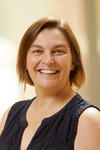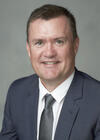In The News: College of Sciences

One of America’s largest airlines is changing its boarding process to make it faster. It could be even faster.
Other researchers who collaborated on the research include: Jason F. Rowe at Bishops University in Canada, Eric Ford at Penn State, Daniel C. Fabrycky at the University of Chicago, Darin Ragozzine at Brigham Young University and Jason H. Steffen at the University of Nevada Las Vegas

United Airlines is re-introducing its WILMA window-to-aisle boarding process, which the airline says saves an average of two minutes per flight. This is not an insignificant savings. Ground time costs airlines an estimated $100 a minute. A $200 savings per flight, multiplied over the 4,900 daily flights the airline operates, means nearly $1 million in daily savings.

United Airlines will start boarding passengers in economy class with window seats first starting next week, a move designed to reduce the time planes spend sitting on the ground.

United Airlines will start boarding passengers in economy class with window seats first starting next week, a move designed to reduce the time planes spend sitting on the ground.
Scientists may have found a way to disable harmful bacteria from being able to sicken millions of people.
The United system, known as Wilma, boards passengers in order of window, middle and aisle seats. But it may not relieve all the bottlenecks, industry professionals argue.

The airline said in an internal memo that it will implement the plan on Oct. 26. The plan – called WILMA, for window, middle and aisle -- was tested at several locations and deemed to shave up to two minutes off boarding time. Variations of the WILMA approach have existed for many years.
The legendary Alexander Fleming, who famously discovered penicillin, once said "never to neglect an extraordinary appearance or happening." And the path of science often leads to just that. New UNLV research is turning the page in our understanding of harmful bacteria and how they turn on certain genes, causing disease in our bodies.

Welcome to UNLV. Today is the first of our four live shows from campus and Greenspun Hall during this, the university’s Homecoming Week.

Welcome to UNLV. Today is the first of our four live shows from campus and Greenspun Hall during this, the university’s Homecoming Week.
More than 500 free-floating planetary-mass objects have been discovered wandering through the Orion Nebula thanks to new observations by the James Webb Space Telescope (JWST). Most bizarrely, about 40 of these newfound objects in the nebula’s Trapezium Cluster exist in wide binary pairs, confounding expectations about how these so-called “rogue planets” form.



